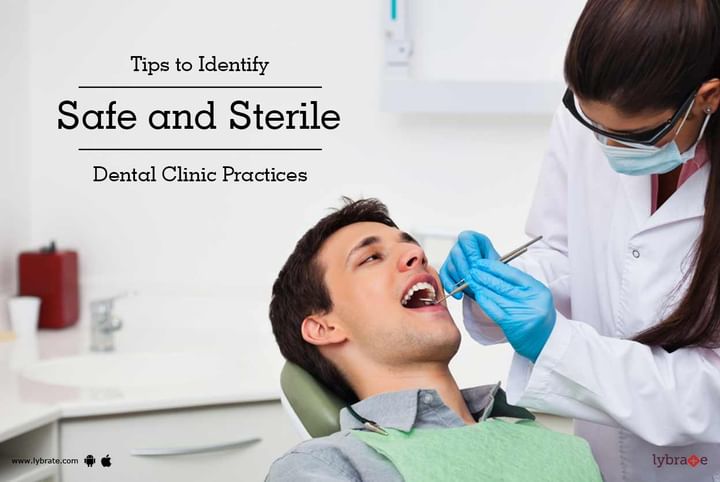Tips to Identify Safe and Sterile Dental Clinic Practices
The dental clinic is a place where you go to get rid of your dental infections. Remember that you are not the only one, and therefore it is also a sort of 'warehouse' for microorganisms that can cause infection. The organisms are invisible, and so there have to be some measures to ensure they are not being passed from one patient to another. Needless to say, dental health care practitioners are exposed to these all the time, and are at greater risk for contracting these infections.
Ways that infection can spread in a dental clinic:
- Inhalation of infective microbes from the air
- Direct contact with infected material like blood, saliva, and other patient materials
- Indirect contact of organisms through contaminated objects like instruments, equipment, or office surfaces like dental chairs
- Sneezing, coughing, talking leading to sputtering of infected material
- Contact of the infected hands to eyes, nose, or oral mucosa
There are some measures that a dental clinic should have in place to manage this risk. Whenever you step into a clinic, watch for these, and when in doubt, feel free to check with your dentist:
- Evaluate the Office: A tidy, uncluttered office is an indication of an office space that is easy to sterilize. A carpeted office may look nice, but it is hard to sterilize it. Tabletops that do not have too many things on them is a good sign.
- Sterilization of Instruments: Type 'B' vacuum autoclave is the preferred method of sterilizing dental instruments over Type 'N' non-vacuum autoclave. Steam sterilization requires direct contact between the saturated steam and every surface of the instrument. As this direct contact can be prevented by the presence of air in the chamber a vacuum must be present to remove the air and enable steam penetration. All pouched instruments, instruments with lumens or cavities (whether pouched or un-pouched) and porous loads (e.g. swabs or dressings) must be sterilized in a vacuum autoclave.An advantage of pouching all instruments is that they remain sterile for up to 6 months until you use them.
- Gloves: When you are on the dental chair, check where the gloves are coming from. These should be disposable ones that are pulled out from a box. Using gloves that were used earlier, even for a simple examination, are a strict no-no. Another good practice that most dentists have is to clasp the hands together to avoid the gloves coming in contact with any other surface.
- Patient Bibs / Drapes: Make sure the clinician places a tidy bib/drape before start of the procedure. A disposable bib/drape is always preferred and safer.
- Syringes: Almost all the dental clinicians use a new sterile disposable syringe is always used for administering local anesthesia. Some clinicians use same irrigation syringes in many patients. Make sure the syringes used for irrigation or disinfecting the root canals or surgical sites are new or the same used for administering local anesthesia.
- Antibiotics: For some dental procedures, there may be no need for an antibiotic but it is always good to confirm the same with the dentist.
- Waste Disposal: Keep a watch on where and how the used syringes, cotton, and other materials are thrown out. This is another tip to identify safe practices.
- A Frank Talk: It is not inappropriate to have a discussion with your dentist on how instruments are sterilized in the office and general practices followed to ensure a sterile environment. Be diplomatic, however, and do not sound accusing though!
Patients are entitled to receive services in safe, sterile environment. Thus, it is important to get your treatment in dental clinics where they follow 'standard sterilization' procedures and strictly respect the 'one instrument-to-one patient' rule and use disposable instruments when needed.These simple tips can help you identify sterile dental practices in the dental clinic.



+1.svg)
